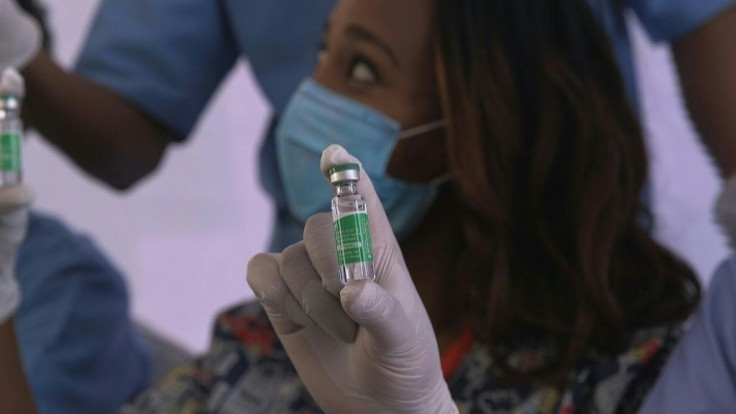Which COVID-19 Vaccine Is Best For You? Doctor Says Don't Be Picky
KEY POINTS
- Dr. Nicole Saphier expressed confidence in the efficacy of all three vaccines approved for use in the U.S.
- She advised those who are able to get vaccinated not to be choosy when it comes to the brand of the shot
- About 111 million doses have been administered in the country so far, according to a vaccine tracker
With several pharmaceutical companies having released COVID-19 vaccines, a variety of choices has been made available to those who wish to get vaccinated. This has apparently led to some becoming picky when it comes to the vaccine they want to receive.
However, Fox News medical contributor Dr. Nicole Saphier is advising those eligible for vaccination not to be choosy when it comes to the brand of the shot they will be getting and instead take what they can get as the country strives to achieve herd immunity against the coronavirus.
“The vaccine that is offered to you is the vaccine that you should consider getting,” Saphier said on “Fox Business Tonight” Tuesday. “I don’t necessarily think that every single person needs to get a vaccine. I believe it’s a personal choice.”
Saphier also highlighted the importance of having discussions with one's physician regarding the risks involved in getting vaccinated -- especially if the patient has underlying health conditions. But the doctor expressed confidence in the vaccines and the protection they afford patients.
“[They] have all demonstrated 100% efficacy in keeping people out of the hospital and saving their life when it comes to the severity of COVID-19,” she said. “Therefore, if you feel a vaccine is right for you, I encourage you to get any vaccine that is being offered to you.”
Three COVID-19 vaccines have now been approved for use by the Food and Drug Administration (FDA): Pfizer’s, Moderna’s as well as Johnson & Johnson's one-dose regimen.
According to Bloomberg's vaccine tracker, 111 million doses have been administered so far, with an average of 2.44 million doses given per day. Last week, coronavirus-related deaths also dropped below 10,000, the lowest since mid-November, Reuters reported.
Meanwhile, biotechnology company Moderna recently announced that it will begin testing its vaccine on children aged 6 months to 11 years old. Although children are the least susceptible to infection, they should still get vaccinated to stem the further spread of the virus, per Saphier.
“When it comes to actually controlling the level of viral transmission, yes, we want to make sure that that viral spread is lower,” she said. “And with that would come testing these vaccines in our children.”
The common side effects of the COVID-19 vaccine are considered normal, according to health authorities. These side effects usually start within a day or two of getting the vaccine and include symptoms such as tiredness, headache, muscle pain, chills, fever and nausea.
The Center for Disease Control and Prevention (CDC) advises patients to continue wearing face masks and practicing social distancing even after they have received their shots.

© Copyright IBTimes 2024. All rights reserved.





















